(Continued from Part I)
The smoke of Bramlet was heavy on Grumadir’s clothes and mind as he arrived at the Iron Horse. The faces of the patrons did not surprise him, as many of them had been curious pilgrims earlier that morning. The serving wench frowned over her armload of dirty plates as he searched for a likely table. A few glares – some resentful, some resigned – met his eyes, but he didn’t return them. He was glad to find Fossick seated alone, as over the past several weeks Grumadir had grown weary of eating without company. He slid uninvited onto the opposite stool.
“I’m not sure I want to be seen with a warlock just now,” the old soldier said without looking up.
“Look, I’m not…” Grumadir began. Fossick cut him off with a raised hand.
“I know, I know,” he said. “You’re just a schoolteacher who happens to work for the Arch of the Red Brethren.”
Grumadir pretended an injured expression, “Come now, my friend. You’ve eaten with me in broad daylight more than once. Why are you suddenly afraid I’m going to ruin your reputation?”
Fossick raised his face and glared at his unwelcome guest, his expression a mixture of suppressed mourning and open anger. His eyes were as cold as the eggs that lay untouched before him.
“Bramlet was scooped last night,” he said. The euphemism doubled as an accusation, but Grumadir knew it was not directed at him personally and should not be so directed. It should be for one warlock only. He mentally brushed it aside as Fossick went on.
“And it was done by one of your friends. Do you feel the pain in this city? Can you smell the fear? While your warlock and the king fiddle, towns are disappearing in ashes and ruin. You seekers of knowledge meddle in what you do not understand.”
“Look in my eyes, Fossick,” said Grumadir. Now it was his turn to be angry. “Do you see any red in my eyes? Do you see the crimson warlock’s mask spreading across my face? You do not. I work for Delanor, yes. I’m learning the ancient languages in which magic is written. I’m seeking knowledge, yes, but not power. I have no desire to wield that which the warlocks throw about for their own reasons.”
“Knowledge is power,” came the reply. “And unadulterated power, such as destroyed Bramlet, is what the Red Brethren seek.” He pulled up his sleeve, displaying a tattoo of a crimson cloak, empty and crossed in front by swords. “Do you see this? Do you recognize it? This is the crest of a Red Guard, and such I was. I was sworn to protect the Brethren. It was a reckless oath of youth, but in my position I witnessed their devotion to knowledge, to power. I saw how power made them but the husks of men. It turned them into scarlet-faced wraiths who could seek nothing else. I watched as they broke others, and were themselves broken, upon the wheel of power.
“So I broke my oath. I broke with the Brethren, replacing my tainted oath with a new one. You say you’re not a warlock, though you seek knowledge from the same books they study. Beware lest it corrupt you as it has corrupted them.”
Fossick’s eyes, bulging with the rage of terrible memory, returned to their normal state as he looked down at his plate. He turned a cold egg over with his knife. His eyes rose again and calmly met those of his guest.
“I want the name of the warlock who scooped Bramlet.”
Grumadir briefly smelled the smoke of the overturned village. He shook it out of his head.
“I don’t know it,” he said.
“No, but your master does. I’m sure you can find a way to discover it. Give me the name, and I will ensure that there are no more Bramlets.”
Half convinced that the old soldier would attempt an angry assault on the tower of any warlock he named, Grumadir did not reply. The idea did not please him, and he began to rise. The Horse’s respectable crowd was being replaced by its boisterous nighttime counterpart. Let Fossick plot his solitary revenge among them, he thought.
“Don’t leave yet,” Fossick said, touching his arm. He was calm now. “There’s plenty of life left in the Horse tonight. Just consider it, friend. Just consider it.”
Grumadir sat back down and, with a wave of his hand, ordered a pair of tankards. It was better to drink with a friend, though mad, than to eat alone.
Silent streets passed beneath his feet as Grumadir pondered the old soldier’s request. Reaching the gate, he was startled by a royal cavalry racing homeward from their latest conference with Delanor. The king and Delanor had long been the best of enemies, rumor tracing their rancor to an ancient squabble over a young lady. Grumadir doubted the veracity of the story; the warlock was older than the king by a factor of at least two. Perhaps the king simply shares his subjects’ disdain for warlocks, he thought. The feeling was mutual: he had heard the Arch of the Red Brethren mutter angry curses at the king when he was deep in his dregs. However, the scooping of a handful of towns – whispered to be the handiwork of a warlock with designs on the throne – forced the two to co-exist. Late-night conferences and galloping messengers had become commonplace in the few weeks since the first Bramlet.
He entered the tower, quietly humming one of the drinking lays he had shared with the boisterous and drunken patrons. Moving on quiet toes, he was startled by the volume of Delanor’s voice drifting through the cracked hallway door. He felt electricity heavy in the air.
Peering quietly into the room, he observed the Arch of the Red Brethren chanting before the runestone. His face was contorted with effort, his eyes wide but unseeing. Grumadir scrutinized every word, every gesture, fascinated by their intensity. Finally, wearied by his exertion, the red-faced warlock slouched off to his room. Grumadir knew from experience he would sleep most of a day.
But Delanor’s hungry expression, which Grumadir had seen only once previously, burned indelibly into his mind…
* * *
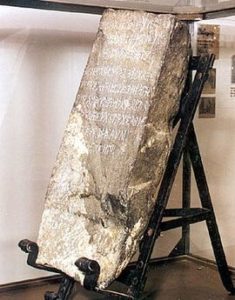
The porters had discovered an iron rack on which to display the runestone. With the care they might have shown an enormous egg (and with Grumadir hovering over them like a worried hen), the porters set it up next to his desk, clearing out quickly before the warlock appeared. They always did.
The Arch of the Red Brethren stood before the dirty block of granite as Grumadir explained how a farmer dug it up while clearing trees. After the sensation died down, he took his magic stone – so his laughing neighbors called it – home, using its unmarked back side as a step for his granary. Grumadir stopped in Bramlet to have his horse re-shod, where a local noticed his pendant’s similar markings and mentioned the magic stone to him. He negotiated its purchase on the chance that its unusual writing might reveal something of historical interest. Though there was little doubt in his mind that the money had been well-spent, the retelling sounded more eventful than Grumadir remembered the reality being.
Delanor ignored the narrator, his unblinking eyes repeatedly scanning the stone’s face. Suddenly, they widened in surprise and his breath quickened. Grumadir interpreted the saga revealed by the strange markings, but it was obvious that the warlock was beyond hearing. His scarlet visage narrowed, silently interrogating the stone, and an expression like fierce hunger spread across his features. He glanced up at Grumadir, meeting his surprised gaze, and his normal mask, the one that revealed nothing, reappeared over his face. He grunted his approval, neutral eyes darting between scholar and stone. Grumadir summoned a chambermaid to clean the remaining mud and dust from his new treasure. Delanor disappeared into his chamber and didn’t mention the runestone again.
(Continued in Part III)
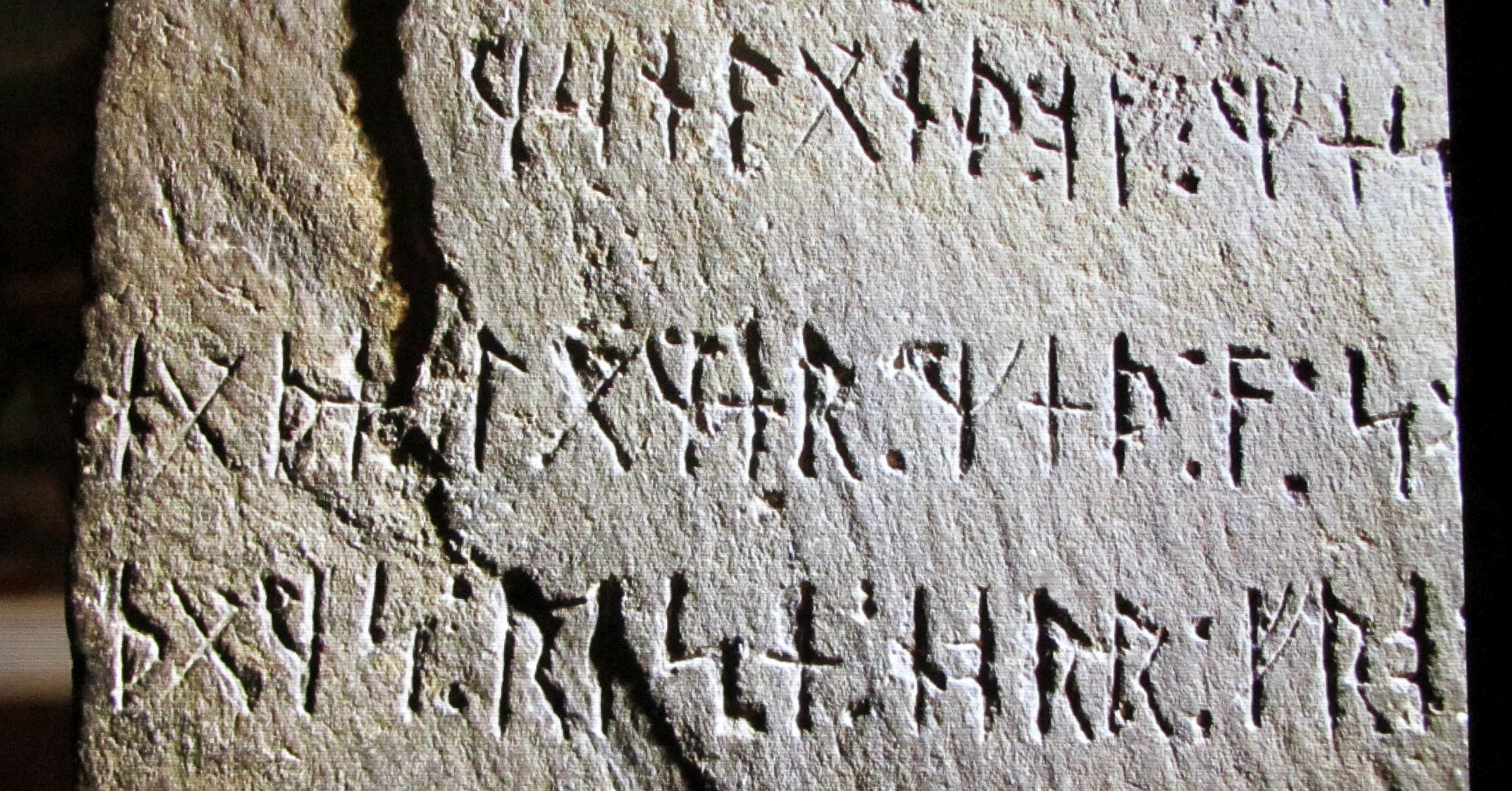


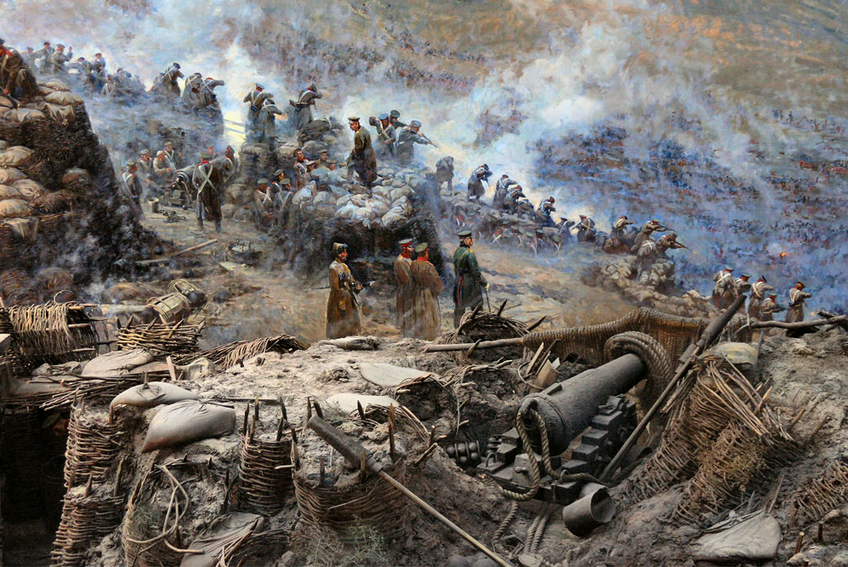
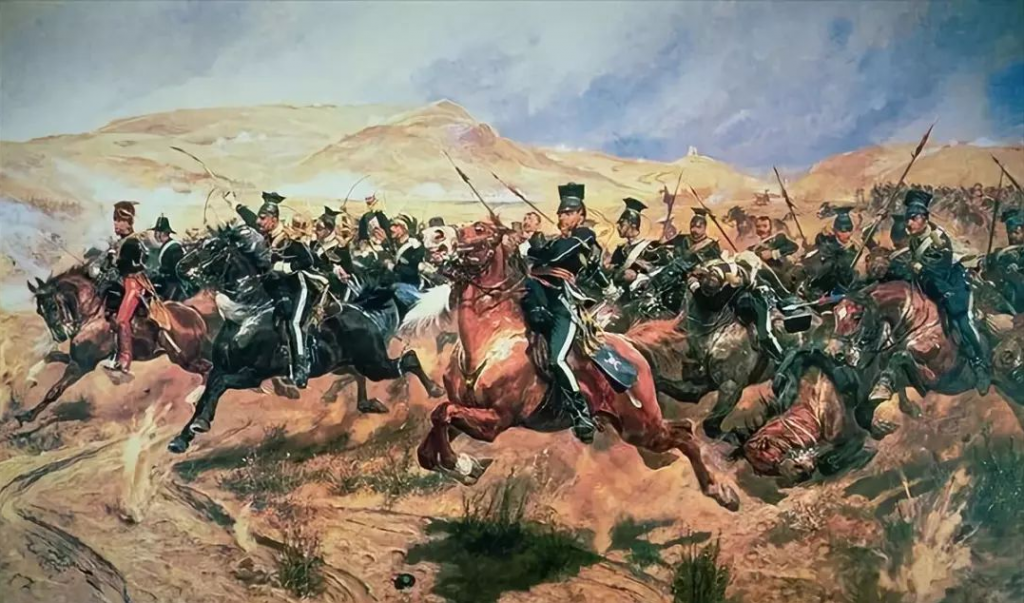


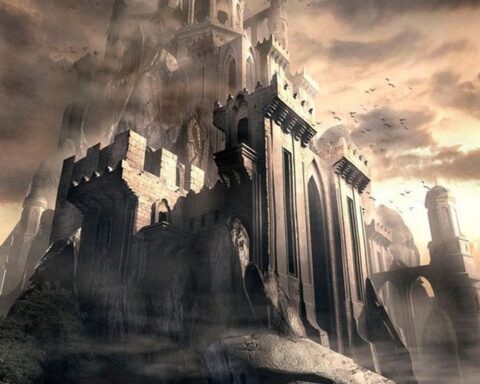
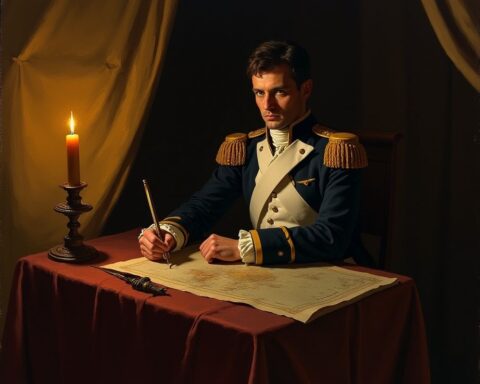
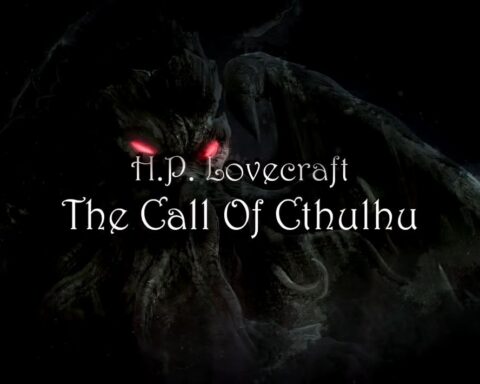
5